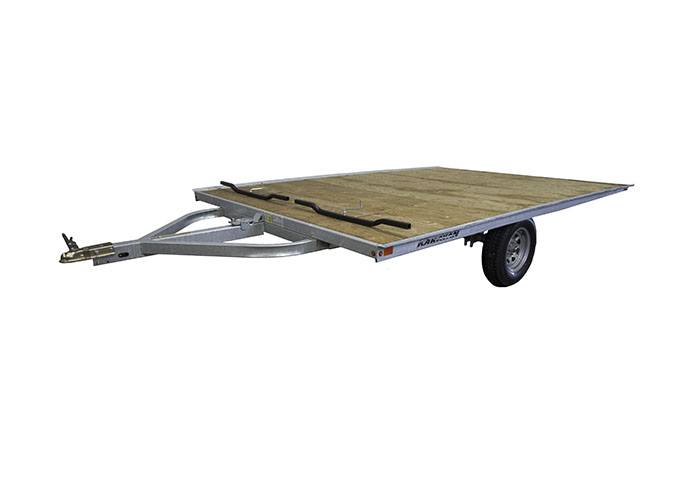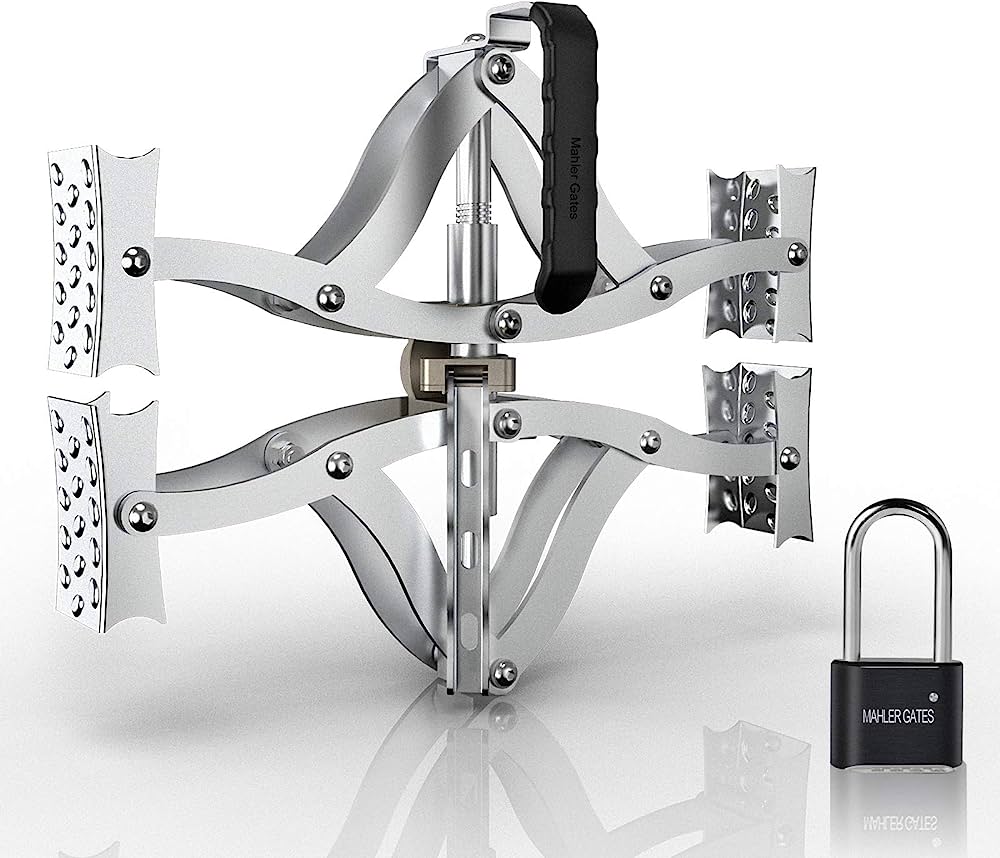Trailer tires are generally good for around 5-6 years based on the recommended industry standards. Trailer tires are an essential piece of equipment that provides safety and stability for your trailer.
Knowing how long they are good for is crucial for maintaining their performance and preventing accidents on the road. The lifespan of trailer tires depends on their usage, wear and tear, and storage conditions. Regular inspections, maintenance, and replacement of tires once they reach the recommended standard age are crucial to ensure their longevity.
In this article, we will discuss the factors that influence the lifespan of trailer tires and how to know when to replace them. We will also provide tips on how to properly store and maintain your trailer tires to ensure they last as long as possible.

Credit: www.nepeinc.com
Understanding Trailer Tires
As a trailer owner, it’s important to have a good understanding of your trailer tires. Knowing how long they last, the different types available, and what load range means can help you make informed purchasing decisions and keep your trailer rolling safely down the road.
Types Of Trailer Tires And Their Features
Trailer tires come in various types, each serving different needs. Here are some of the most common types of trailer tires:
- Bias-ply tires: These tires have a stiffer sidewall construction and are best suited for heavy loads and rough terrain. They’re also less expensive than radial tires but tend to wear out more quickly.
- Radial tires: Radial tires have a flexible sidewall construction that provides smoother rides and better fuel economy than bias-ply tires. They also last longer and are more durable.
- High-speed trailer tires: These tires are designed for highway use and can withstand high speeds for extended periods. They’re usually rated for speeds of up to 81 mph.
- Run-flat tires: These tires allow you to keep driving, even if they’re punctured. They’re designed with reinforced sidewalls that can support the weight of the trailer even when the tire is flat.
The Anatomy Of A Trailer Tire
Trailer tires have various components that work together to keep them rolling. Here’s a breakdown of their anatomy:
- Tread: The part of the tire that makes contact with the road. It’s designed to provide traction and grip in various weather conditions.
- Sidewall: The part of the tire that connects the tread to the wheel. It’s also responsible for supporting the weight of the trailer.
- Bead: The inner edge of the tire that connects to the wheel rim. It keeps the tire in place and helps maintain proper tire pressure.
- Casing ply: Layers of rubber-coated cords that provide the tire with its structure and strength.
What Load Range Means And How It Affects Your Trailer’S Weight Capacity
Load range is a system developed by the tire and rim association that classifies tires according to their weight-carrying capacity. The higher the load range number, the more weight the tire can support.
When choosing trailer tires, it’s vital to pay attention to the load capacity rating. The weight of your trailer, cargo, and any passengers should not exceed the capacity of your tires. Overloading can cause tire failure, which can lead to accidents and damage to your trailer.
Ultimately, understanding trailer tires is key to keeping your trailer running smoothly and safely on the road. By considering the different types of tires available, their anatomy, and load range, you can choose the best tires for your trailer’s needs and ensure you have a secure haul.
Factors That Affect Trailer Tire Life
Trailer tires are an essential component of any trailer, but they are not immune to wear and tear. Their lifespan is influenced by many factors, and understanding these factors is crucial in extending a tire’s durability. Let’s take a closer look at some of the critical factors that affect trailer tire life.
The Role Of Weather And Environment
Weather and environment significantly affect trailer tire longevity. Here are some key points to consider:
- High temperatures can cause tire rubber to crack and weaken, while cold temperatures can decrease a tire’s elasticity. Both extreme weather conditions can result in a tire blowing out or losing its tread faster.
- Wet conditions increase the likelihood of hydroplaning, which puts stress on the tire’s rubber, making it more vulnerable to punctures and flattening.
- Exposure to sunlight and uv rays can cause the tire’s sidewall to weaken, leading to cracking and separation of the tire layers.
How Driving Habits Impact Tire Wear
Driving habits can also play a significant role in the life expectancy of trailer tires. Here are some key points to consider:
- Excessive speed, sudden braking, and harsh acceleration are all driving behaviors that can put stress on trailer tires, causing them to wear prematurely.
- Frequent towing of heavy loads can cause trailer tires to overheat, leading to tread separation and punctures.
- The more time a trailer tire spends on the road, the more wear and tear it will accumulate. So it’s best to avoid unnecessary driving, such as taking long detours or venturing off-road.
The Impact Of Underinflation And Overloading
Finally, underinflation and overloading are two of the most common causes of trailer tire wear. Here are some key points to consider:
- When a tire is underinflated, it experiences excessive flexing, leading to heat buildup and premature wear that can eventually result in blowouts or punctures.
- Overloading puts more weight on the tires, causing them to wear out faster and increasing the risk of tire failure.
- It’s crucial always to check the manufacturer’s recommended tire pressure and weight capacity and stick to these guidelines to extend the life of your trailer tires.
Understanding the factors that affect trailer tire life is critical to ensuring safe and reliable travel. By following a few basic guidelines like maintaining your tire pressure, avoiding overloading, and driving cautiously, you can help extend the life of your trailer tires and keep your travels smooth and stress-free.
Signs Of Wear And Tear
How To Inspect Your Trailer Tires For Damage
Regular checks on your trailer tires are crucial to prevent accidents, ensure a smooth ride, and extend your tires’ lifespan. Here are some steps to take when inspecting your trailer tires for damage:
- Check the tire pressure and look for any underinflation or overinflation issues. This can lead to irregular wear patterns and poor handling on the road.
- Examine the tire sidewalls for any cracks, gouges, bulges, or punctures, all of which can lead to tire failure.
- Look at the tire treads for signs of uneven wear or bald spots, as well as for any embedded objects such as nails.
- Check the lug nuts or bolts for any looseness or missing pieces.
What To Look For During Regular Check-Ups
Regular check-ups are important to catch any potential issues with your trailer tires before they become serious problems. Here are some things you should keep in mind when performing routine maintenance on your trailer tires:
- Check the tire pressure at least once a month and before every trip. This is a vital factor in maintaining your tires’ health and performance.
- Keep an eye on the tread depth, which should ideally be at least 2/32 of an inch. Anything less than this can lead to poor handling and increased risk of hydroplaning.
- Look for any signs of cracking, bulging, or punctures on the tire sidewalls. These can indicate structural problems that could lead to a blowout.
- Check for any visible wear and tear on the tire and look for signs of uneven wear patterns on the tread. These can indicate alignment issues on your trailer.
Warning Signs That Indicate It’S Time To Replace Your Tires
Knowing when to replace your trailer tires is essential to avoid breakdowns and ensure safe travels. tires typically last anywhere from three to five years but can last longer with proper maintenance. Here are some warning signs that indicate it’s time to replace your tires:
- If you notice any bulges, cracks, or gouges on the tire sidewalls, you should replace your tires immediately as they can cause blowouts.
- If the tread is worn down to 2/32 of an inch or less, it’s time to replace your tires as they will no longer provide adequate traction on the road.
- Look out for any signs of excessive vibration or pulling to one side while driving, which can indicate alignment problems or worn-out tires.
- If you’ve had your trailer tires for more than five years, it’s recommended to replace them even if they still appear to be in good condition.
Maximizing Trailer Tire Lifespan
One of the most important aspects of owning a trailer is proper tire maintenance. With regular maintenance and care, trailer tires can last for several years. Here are some tips to help you maximize the lifespan of your trailer tires:
Tips For Proper Tire Maintenance
- Keep tire pressure at the manufacturer’s recommended level.
- Check tire pressure before every trip.
- Rotate your tires regularly to promote even wear.
- Inspect tires for signs of damage or wear, such as cracks, bulges, or punctures.
- Replace tires if they are more than five years old, even if they still have good tread.
Advice For Storage And Transportation
- Store your trailer with the tires off the ground to avoid flat spots.
- If you store your trailer for an extended period, place it on blocks and remove the tires.
- When transporting your trailer, make sure the load is distributed evenly and does not exceed the trailer’s weight capacity.
- Avoid overloading your trailer, which can cause excessive wear on your tires.
Opinions On The Usefulness Of Tire Covers
- Tire covers can protect your tires from the sun’s harmful uv rays, which can cause premature aging and cracking.
- Tire covers can also protect your tires from dirt, debris, and other environmental factors.
- Some people prefer not to use tire covers because they can trap moisture and cause damage to your tires over time.
Factors To Consider When Buying New Trailer Tires
- Consider the size and weight capacity of your trailer when choosing new tires.
- Look for tires with a higher load index rating, which indicates the maximum weight the tire can support.
- Consider the type of terrain where you will be traveling, and choose tires with appropriate tread patterns.
- Look for tires that are made from high-quality materials and are designed to withstand harsh conditions.
Remember, proper tire maintenance is essential for maximizing the lifespan of your trailer tires. By following these tips and taking good care of your tires, you can ensure safe and reliable travels for years to come.
Frequently Asked Questions For How Long Are Trailer Tires Good For
How Long Do Trailer Tires Last?
Trailer tires have an average lifespan of three to five years, but they can last longer with proper maintenance and storage. It’s essential to check them regularly for signs of wear and tear and avoid overloading your trailer.
What Is The Maximum Age Of A Trailer Tire?
Trailer tires can last up to six years from the date of manufacture, even if they haven’t been used frequently. After six years, you should replace your trailer tires, even if they still have sufficient tread depth.
How Can I Extend The Life Of My Trailer Tires?
You can extend the life of your trailer tires by ensuring that they are inflated to the proper pressure, rotating them regularly, storing them away from the elements, and avoiding overloading the trailer. Additionally, check the tires regularly for signs of wear and tear.
Can I Use Car Tires On My Trailer?
It is not recommended to use car tires on your trailer, as they are not designed to handle the weight and stress of a trailer. Instead, use trailer-specific tires designed for higher load capacity and better stability.
What Are The Signs Of Trailer Tire Wear?
The signs of trailer tire wear include uneven tread wear, cracks in the sidewall or tread, bulges or blisters, or vibration while driving. If you notice any of these signs, it may be time to replace your trailer tires.
Conclusion
Based on everything we’ve discussed, it is clear that regular inspection and maintenance are essential to ensure the longevity of your trailer tires. By following some of the tips we’ve outlined above, you can make sure that your tires remain in good condition for as long as possible.
Remember that prevention is always better than cure, so be proactive in your approach to tire care. Whether you’re an avid traveler or a weekend warrior, taking the time to properly care for your trailer tires can go a long way in saving you time, money, and frustration.
So, don’t wait until it’s too late. Start taking care of your tires today and enjoy the peace of mind that comes with a safe and enjoyable journey.

